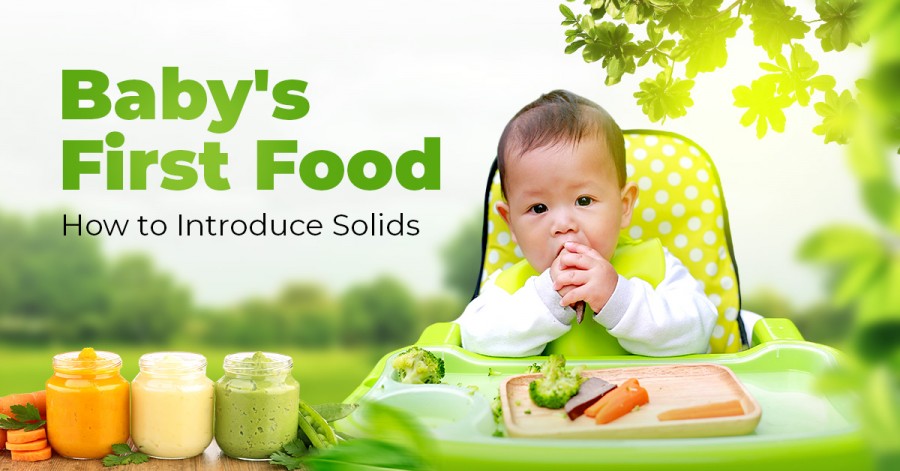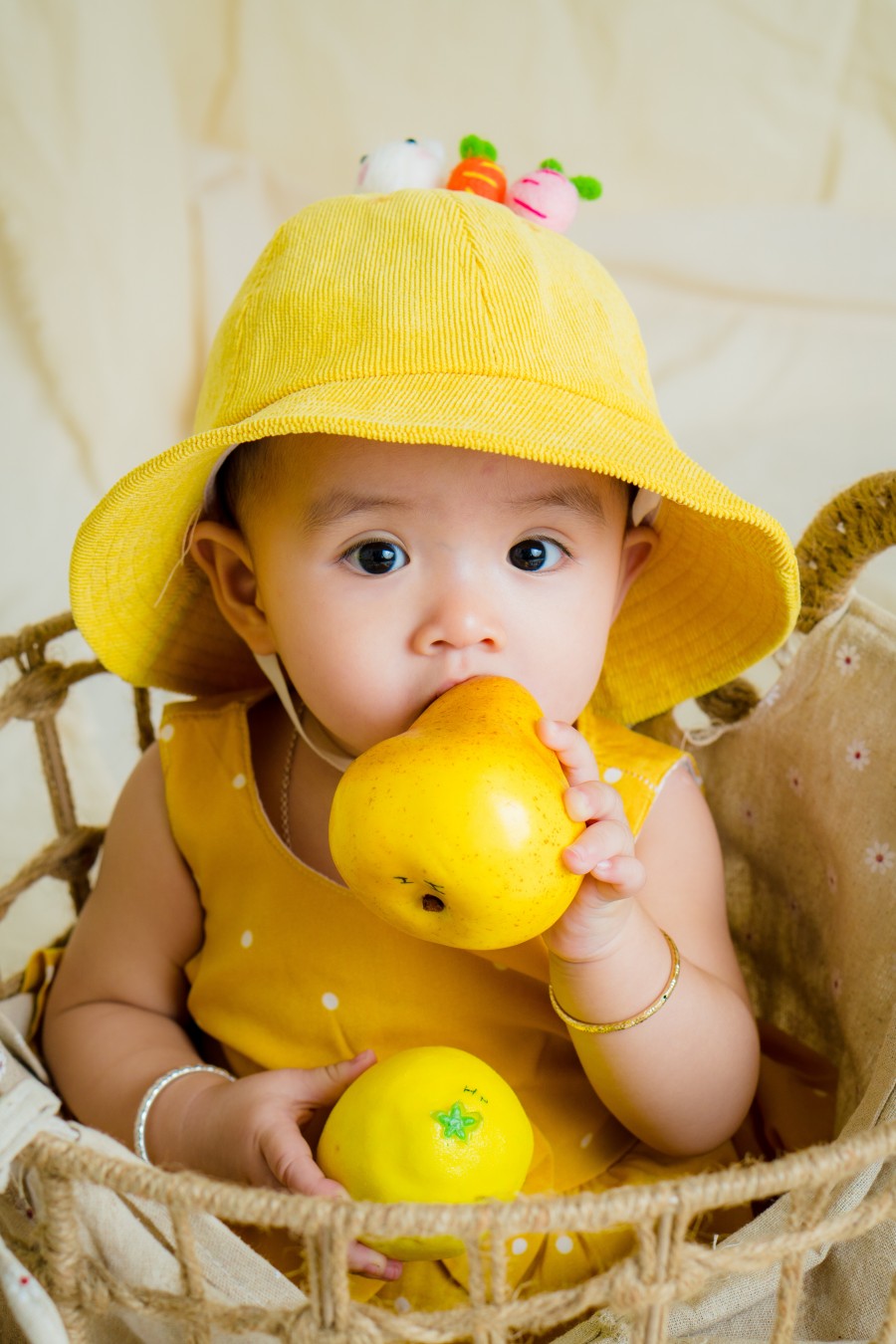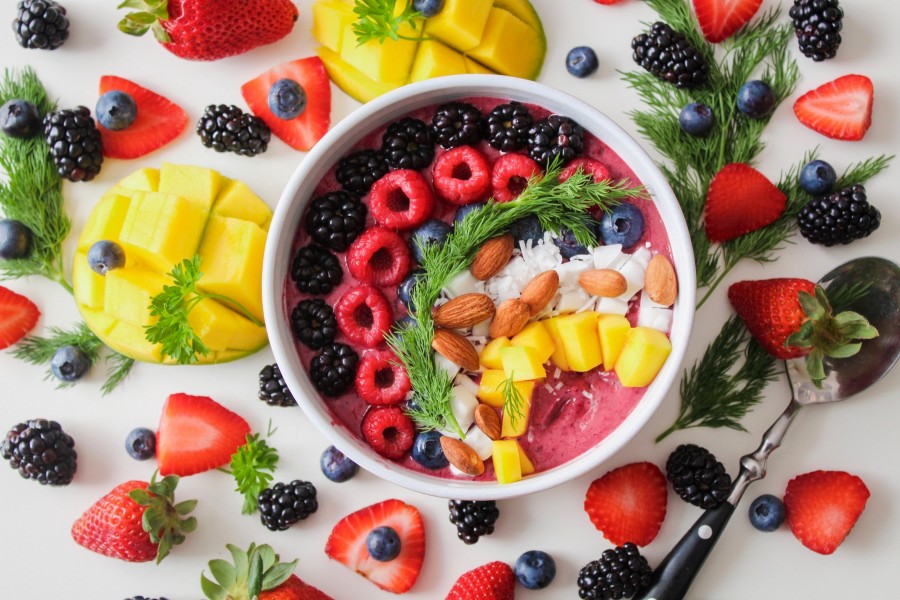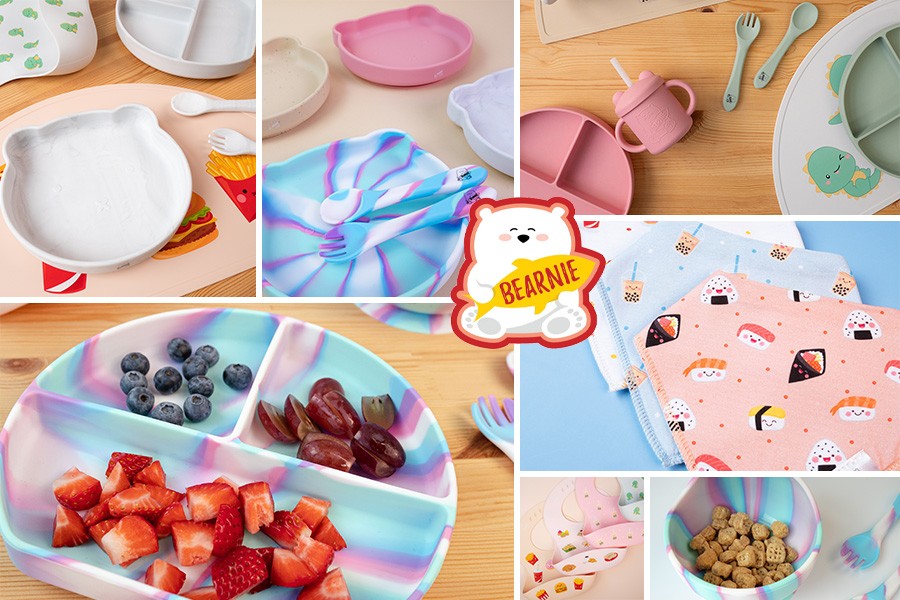Baby's First Food: How to Introduce Solids
Published 29 June 2023 at 08:47
Tickikids Blog Singapore > Digest > Baby's First Food: How to Introduce Solids

So, your baby is already eyeing the food on your plate with interest. It may be time to introduce solid foods into your baby's diet. Imagine how many wonderful taste discoveries await your baby! Juicy and sweet fruits, fresh and nutrient vegetables, creamy pasta dishes, scrambled eggs - and the list goes on and on!
For the first 6 months after birth, children have enough nutrients that they have accumulated in the womb and receive with their mother's milk or formula. But after 6 months, the need for iron and zinc, and other nutrients increases, and the stored nutrients are no longer sufficient.
In addition, solid foods provide experiences of new tastes and textures, help develop teeth and jaws, and actively participate in the development of speech apparatus.
It is hard to underestimate the importance of introducing solid foods - so when and how best to take this step? Let's find out!
When to start introducing solids?
Generally, babies are ready to start complementary feeding from 4 to 6 months of age. However, the World Health Organisation highlights that the best time is from 6 months of age. Here, everything depends on the development of your baby as there are some determinants that show that it is time to add some flavors to your baby’s diet.
However, no matter how much you want to start complementary foods, it is better not to rush.
Firstly, there is no need to add solids early on as babies get all necessary nutrition for the first 6 months of life with breast milk, formula, or a combination of the two.
Secondly, the baby’s digestive system lacks some essential enzymes that help break down solid foods.
But it's not worth dragging out the process either. Studies suggest that introducing solid foods too early may lead to an increased risk of chronic diseases such as islet autoimmunity, obesity, adult-onset celiac disease, and eczema; and introduction too late may increase feeding difficulties.

Image Credit: Pexels
Signs that your baby is ready for solid foods
- Baby remains sitting upright with minimal support
- Baby holds their head and neck steady when sitting
- Baby shows interest in food (for example, tries to reach out for food on a plate)
When is the best time of the day to introduce solids?
Early on in the process, solid food is needed more for the child to learn to chew and swallow than as a significant source of nutrients. Most of the baby's nutrients will still be taken with milk or formula, so it's worth treating complementary foods as a bonus food.
So, choose a time when both of you and the baby are happy and relaxed. Make sure that your little one is not hungry as in that case, they will only want milk or formula because they know that it can satisfy their hunger.
At the age of 6-9 months, it is about time to introduce an eating routine. It works especially well if your family has a tradition of getting together at the table - sit your child with you. It is important that you don't force your little one to eat - just let them sit next to you in a high chair when the family is eating.
Approximate Feeding Schedule
Before reading the schedule, keep in mind that all babies are different so there is no clear guidance on the exact amounts of food - let your junior lead the way!
Firstly, the amount.
- 4-6 months: 2 meals per day, 2-4 tablespoons each;
- 7-12 months: 3 meals per day, each the size of your baby’s fist.
Remember, there will be ups and downs, there will be days when babies only want milk or formula - and that's normal.

Image Credit: Pexels
What to propose to your picky eater?
4 to 6 months: Single-grain cereals
Choose cereals fortified with iron in the combination of 1 tablespoon of cereal to 4-5 tablespoons of breast milk or formula. If your little one is uninterested in cereals (turns head away, pushes away the spoon) do not force them to eat, it is better to wait for a week and try again.
6-8 months: Pureed veggies, fruits, and meats
And there is no difference in which product to start. Your task here is to introduce your child to as many various flavor profiles as possible. Moreover, do not be afraid to introduce allergenic food at an early age as it can reduce the risk of developing a food allergy. For example, according to results of the latest research, the American Academy of Pediatrics (AAP) recommends infants with the highest risk of developing food allergies be introduced to peanut protein between the ages of 4 and 6 months. But firstly discuss the way of introducing such foods into the baby’s diet with your pediatrician.
6 to 8 months: Single-ingredient finger foods
The main requirement here is that the products should be soft enough to mash with the gentle pressure of fingers. For example, you can try small pieces of banana, avocado, or rice puffs.
9 to 12 months: Chopped, ground, or mashed foods
It is a period of active growth and it requires more iron. So, it is time for pureed meats like beef, turkey, or chicken and new texture like yogurt, cottage cheese, and mashed sweet potatoes.
What solid foods to avoid?
No matter how delicious these products may seem to you and your baby, safety first! So, it is necessary to avoid products that can cause a choking hazard, like seeds, grapes, hard raw vegetables, nuts, raisins, popcorn etc.
Keep an eye on allergenic foods. Always give your baby only one new product at a time, and wait for 3-4 days before adding a new product. If your child develops an allergic reaction ( a rash, hives, wheezing, difficulty breathing, vomiting, excessive gas, diarrhea, or blood in their stools), call your pediatrician.
Image Credit: Little Bearnie
How to make mealtime more exciting?
Make it a real feast with utensils and bibs made of eco- and baby-friendly materials!
Little Bearnie is one of Singapore’s most well-known shops of unique and special handmade & lifestyle products for babies and moms. And one of the prominent features of this shop is a strong emphasis on the quality of materials used in the products. Here, each and every piece of product goes through stringent quality checks - using only 100% food-grade silicone and toxic-free materials.
The well-thought-out design of the mealtime sets will save you a lot of nerves and time as the strong suction base of the bowl prevents any spillages and the high back prevents spills and keeps food inside. And, to make cleaning even easier, you can try out the magic of the silicone catch-all bibs! Your little one will be charmed by funny fruits and you will be amazed how little it takes to clean up all the mess!
Here at Little Bearnie, you will find everything from teethers to posh baby gift sets. And whatever you choose, you can be sure of the quality and safety of the goods.
